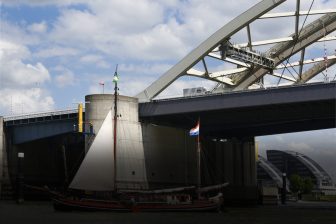ADB: 428 mln dollar for infrastructure Indonesia
Manila, Philippines – ADB will help Indonesia carry out critical reforms needed to develop the country’s infrastructure and drive economic growth.
The Infrastructure Reform Sector Development Program (IRSDP) will offer more than $428 million in loans and grants to the Government of Indonesia to help improve the country’s investment climate and tap the power of the private sector in meeting Indonesia’s huge infrastructure needs. These will be supplemented by a $7.6 million grant from the Government of the Netherlands for a project development facility.
“Indonesia has the potential for dynamic economic growth in the years ahead,” says Rajat M. Nag, Director General of ADB’s Southeast Asia Department. “The development of infrastructure is vital to the growth Indonesia needs to create jobs and bring people out of poverty. Ensuring adequate quantity and quality of infrastructure services is critical for restoring Indonesia’s competitiveness.”
Before the Asian economic crisis in the mid-1990s, Indonesia spent about 6% of its gross domestic product on infrastructure. Today, that figure is down to around 2%, and the country’s economy has suffered as a result. About 50 million people have no access to treated water, 90 million are without electricity, and close to 200 million have no direct access to a phone or sewage network.
The poor are the hardest hit by the lack of infrastructure. Roads in poor condition keep people in poverty by denying their access to economic opportunities. Nearly one out of five rural villages in Indonesia is inaccessible for part of the year.
The Indonesian Government estimates that the country needs about $65 billion in infrastructure investments over the next five years, with $25 billion to be met by the Government budget, $14 billion by domestic banks, insurance and pension funds; $10 billion by development partners, and $16 billion by private sector investors.
The ADB program will assist Indonesia in improving the policies, laws and institutions that are needed to attract large scale private sector infrastructure investments. It will also help streamline the infrastructure responsibilities of the national and local governments.
“The public sector alone cannot meet the investment needs. The private sector has to be brought in. But private investors look for a level playing field between the public and private sectors, clarity of regulatory framework, and transparency in the bidding process,” says Ramesh Subramaniam, ADB Principal Economist based at its office in Jakarta. “The program supports the Government in implementing reforms in these important areas.”
The program is planned to be undertaken as a cluster of three subprograms, the first of which is backed by a loan of $400 million from ADB’s ordinary capital resources. This has a 15-year term, including a grace period of three years, with interest determined in accordance with ADB’s LIBOR-based lending facility.
Support under each of the two subsequent subprograms up to 2010 will be determined based on needs, as well as progress made.
One of the most critical constraints to infrastructure development is the lack of adequate project preparation. Besides the $400 million loan, the program also includes a loan of $26.5 million equivalent from ADB’s concessional Asian Development Fund to help the Government establish a project development facility to prepare infrastructure projects well, make them bankable, and bid them out in a transparent manner.
The concessional loan has a 32-year term, including a grace period of eight years. Interest is charged at 1% per annum during the grace period and 1.5% per annum subsequently.
A further $2 million grant from ADB will support the Government in implementing a risk management framework under IRSDP.
BAPPENAS, the National Development Planning Agency, will be the executing agency for the program.
ADB’s Board of Directors recently endorsed a four-year country strategy for Indonesia that proposed about $3.36 billion in loans and another $47.6 million in grants. ADB’s assistance will be focused on infrastructure development, improving the financial sector, supporting government decentralization, accelerating the achievement of the Millennium Development Goals (MDGs), and environmental protection.
U las zojuist één van de gratis premium artikelen
Onbeperkt lezen? Profiteer nu van de introductieaanbieding voor € 10,- per maand.
Bent u al abonnee?



